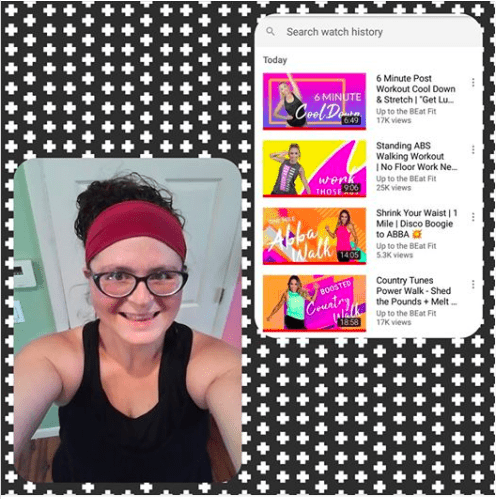 Mindset
read more >
Mindset
read more >

How Gina B Overcame Emotional Eating
I was the person who used to obsess over food from morning to night, binge eat, feel enormous amounts of guilt and then do it all over again the next day. It has been a journey for me to develop the skills needed to be able to cope with that cycle and can now speak on.
I was the person who used to obsess over food from morning to night, binge eat, feel enormous amounts of guilt and then do it all over again the next day. It has been a journey for me to develop the skills needed to be able to cope with that cycle and can now speak from a place where I am able to nourish myself with food 80% of the time and still enjoy the treats that make me happy.
Often times we use emotional eating as a way to relieve stress or cope with unpleasant emotions rather than the need to satisfy hunger. When reflecting on how we’ve been brought up around food it’s no wonder we turn to food in negative but also positive events – think birthday cakes, feeding to suppress crying as a child, food as a reward for good behaviour or eating around events of grieving. While using food as comfort can be useful in some cases, it is important to identify when we are consistently turning to food as our only coping mechanism and identify healthier ways in which we may be able to manage our emotions.
Below I have listed my top tips that have helped me with my journey around emotional eating, in hope that these may also help you if this is something that you are currently struggling with.
1. Interrupt the habit
Habits are sneaky in that sometimes they can happen without you even thinking, so in order to break the habit we must firstly be able to recognise when it is taking place. Once we are able to do this we can then implement strategies to disrupt the habit by performing a different type of behaviour in its place. For example, if you know that 3pm is when you mostly crave sugar, replace your sugar fix with taking a 10 minute walk instead. Being mindful of your hunger cues can be really helpful with this which leads me to my next tip!
2. Food journaling
Food journaling was a really important factor that helped me to overcome habits of emotional eating as it allowed me to identify when I was turning to food and the emotions that were triggering it. I would definitely recommend keeping a journal that focuses on your emotions and how you feel after you eat food. For example: 7:00pm put the kids to bed and had a bowl of ice-cream – enjoyed it during but felt guilty afterward. If you are unsure of how to go about food journaling you can download this template to help you get started.
3. Lean on your support system
A good support system does wonders for managing emotions and giving you an outlet to express how you’re feeling. Sometimes all you need is to get on the phone to someone close to you whether that’s a good friend, sibling or parent and tell them about all the crappy things that happened in your day! Just that short conversation can make you feel comforted and you may find that you don’t actually need to turn to food for comfort. That’s why I created the Up to the BEat Facebook Tribe, an encouraging community that holds you accountable to your goals and a place where everyone supports each other.
4. I regret that workout, said no one ever!
Moving your body makes you feel good, there is no denying that. This is not a new concept and definitely something we have all heard before but shouldn’t be overlooked as a way to manage emotional eating. Along my journey, I found that just moving my body in the slightest was enough to break the habit of emotional eating and had a flow on effect in promoting more positive and healthier behaviours. If motivation is something you struggle with when it comes to moving your body, try coupling this with tip number two and drag a friend with you, or better yet – throw on one of my 10 minute YouTube videos and walk it out in the comfort of your home!
5. What makes you happy?
Ask yourself what makes you happy other than food and implement other activities that you can use as a way to relax or take a time out if you’re feeling stressed, anxious or any other overwhelming emotions. This will look different for each person but could include activities such as booking yourself into a yoga class once a week or as little as taking a bath. Even just spending 5 minutes to meditate particularly helps to identify how you’re feeling in that moment and is a great ‘time-out’ to disrupt the habit before getting on with what you need to do.
6. Remember to be kind to yourself
If you do catch yourself binge, remember not to beat yourself up about it – learn from the experience and get back on track the next day. Often times it’s not something that can be predicted however in situations where you know that you have a stressful week coming up, try implementing other strategies to make things a little easier on yourself such as meal prep, or scheduling in a day where you are able to do something for you whether that be a yoga class or taking time out for a walk.
To get to the place that I am at now didn’t happen overnight and to make the progress I have takes constant work. Don’t be too harsh on yourself, remember it’s a marathon not a sprint and I too have days that aren’t perfect.






LEAVE A COMMENT